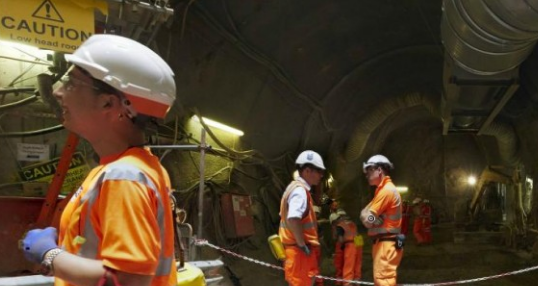A project is a temporary venture to produce a new and unique deliverable. A deliverable could be a tangible product, a service or achievement of a required outcome. stakeholdermap.comOne of the best ways to differentiate a project from say operations or business as usual is to look for a clear start and end. A project's delivery dates may move, but the project will have a defined end either because the project produces the defined product or deliverable or because the project is agreed to be closed.
Characteristics of a project

1. It has a start and a finish
To be temporary there must be a clear start and end to the project. A point when the project commences and a point when it can be agreed to done. In other words,the point when the project's objectives have been realized, or the project is terminated because the objectives won't be achieved. In agile project management this is expressed as the 'definition of done'.2. It creates something new
Because projects result in unique deliverables there is unlikely to be a template or tested approach for completing the project. Once the project is complete it won't need to be repeated, at least not in the same way as any related deliverable will require a different approach.For example multiple customers may require a software upgrade. Elements of upgrading the software will be the same across projects, but the customer configuration, customizations and integrations will be different thus each upgrade project deliverable will be unique.
Software upgrades provide an interesting example of the difference between projects and BAU activities. As companies increasingly move to a SaaS model, upgrades are becoming pre-defined and repeatable. This means that many no longer require a project approach for delivery. This is similar to the updates to the operating system on a smart phone. The creation of the new version of the operating system will likely be a project, but the rollout will be part of BAU as the update is simply pushed to customers.
3. It starts with an idea, which is turned into something
A Project is simply a set of tasks which turn an idea into something – a deliverable. That might be something you can hold, use or work with or it might be something less tangible like a project to change behaviour.At first the details of the deliverable are vague, the project will start with a goal or set of objectives and the detail will be developed over the course of the project. Usbr.gov describe this process as progress elaboration. Project Management methods are designed to help get us from the idea to the deliverable, by guiding us through a project lifecycle:
Idea >> Detailed look (feasibility) >> Design >> Build >> Test >> Close
Read more about the project lifecycle.
Read more about the project lifecycle.
4. It isn't business as usual
Delivering projects might be the business of a consulting company, but each project is unique. BAU activities or Operations are repetitive - a person or process will follow a set of steps the same way to get the same result. Two classic examples are the process to pay staff each month, and the paying of invoices. Some more examples are shown in the table below.| Project | Business as Usual |
|---|---|
| New payroll system | Payroll processing each month |
| New buildings or extensions | Building maintenance |
| Designing a new car | The car production line |
| Developing a new version of software | Supporting the new software version e.g. answering support tickets. |
Projects still follow processes
Projects are not the same as Operations, but they still follow a set of processes. These processes can be split into two categories: project management processes and product focused processes.Project Management Processes
Project management processes guide the management, control and monitoring of the project. Multiple tools and techniques are used for example, project planning techniques support the planning process and reporting tools support the directing and reporting processes. These processes can be applied regardless of product type or industry and are defined and supported by Project Management governing bodies like the Project Management Institute (PMI).Product Processes
Projects also have processes that are designed to ensure the project's products meet the agreed specifications. These will vary depending on the product, so a process to build a new house will be very different from the process to design a new car.Examples of Projects compared to operations or business as usual
Railway Project example - Crossrail
Crossrail is a new railway designed to speed up journey times around London and the South East. The new railway will be called the Elizabeth Line and will enable faster and simpler travel across London with fewer changes.
Railway Operations example - Running stations, maintaining tracks
. Network Rail own and run Britain's railways. Day to day running of the railway is split into nine routes each headed by a managing director responsible for running the network in their area.
Project - Designing a new car
Projects follow a lifecycle in that they are broken down into phases or in the case of agile projects into sprints. Skoda follow an 8 step project lifecycle when designing a new concept car.
Operations – The production line building the car
Honda's first car plant opened in late 1992, it produces 150,000 cars per year including the CR-V, Civic 5 Door, Civic Tourer and the Civic Type R. The product line operates on a two shift basis, and consists of seven departments Weld, Paint, Assembly Frame, Material Logistics and Vehicle Quality.
Summing up
A project provides something unique for example, a product, a service or a result.Projects are unique they are structured and managed using acknowledged standards, skill sets, processes and procedures. These are created, improved and maintained by organizations dedicated to the Project Management profession like the Association of Project Management and the Project Management Institute.
Read more on Project Management
Project Management ArticlesProject Manager Job Descriptions
Program Management
Project Manager Salary
Why use projects and programs
Why we need Project Managers!

